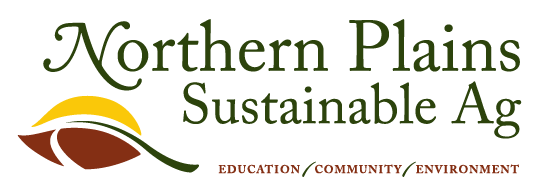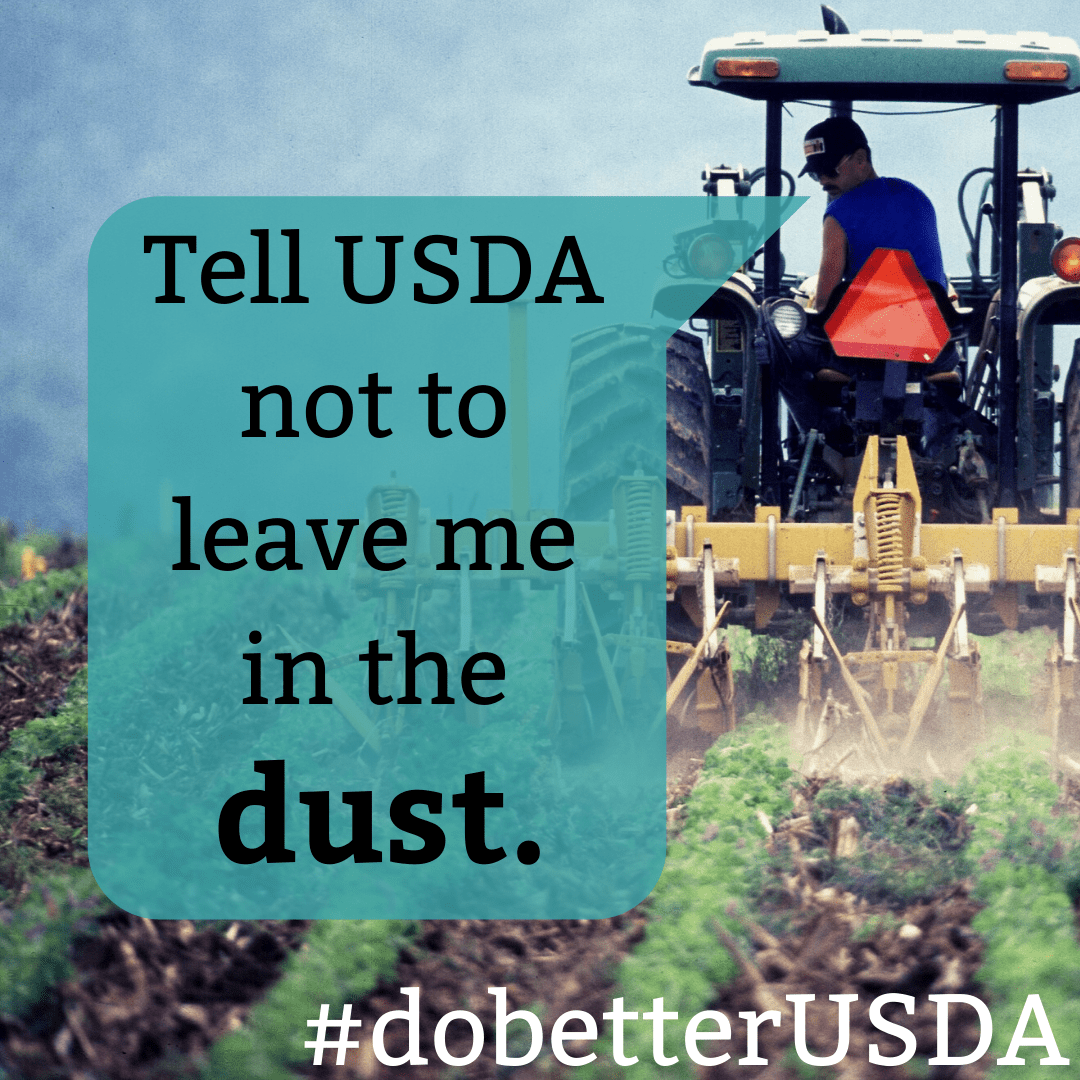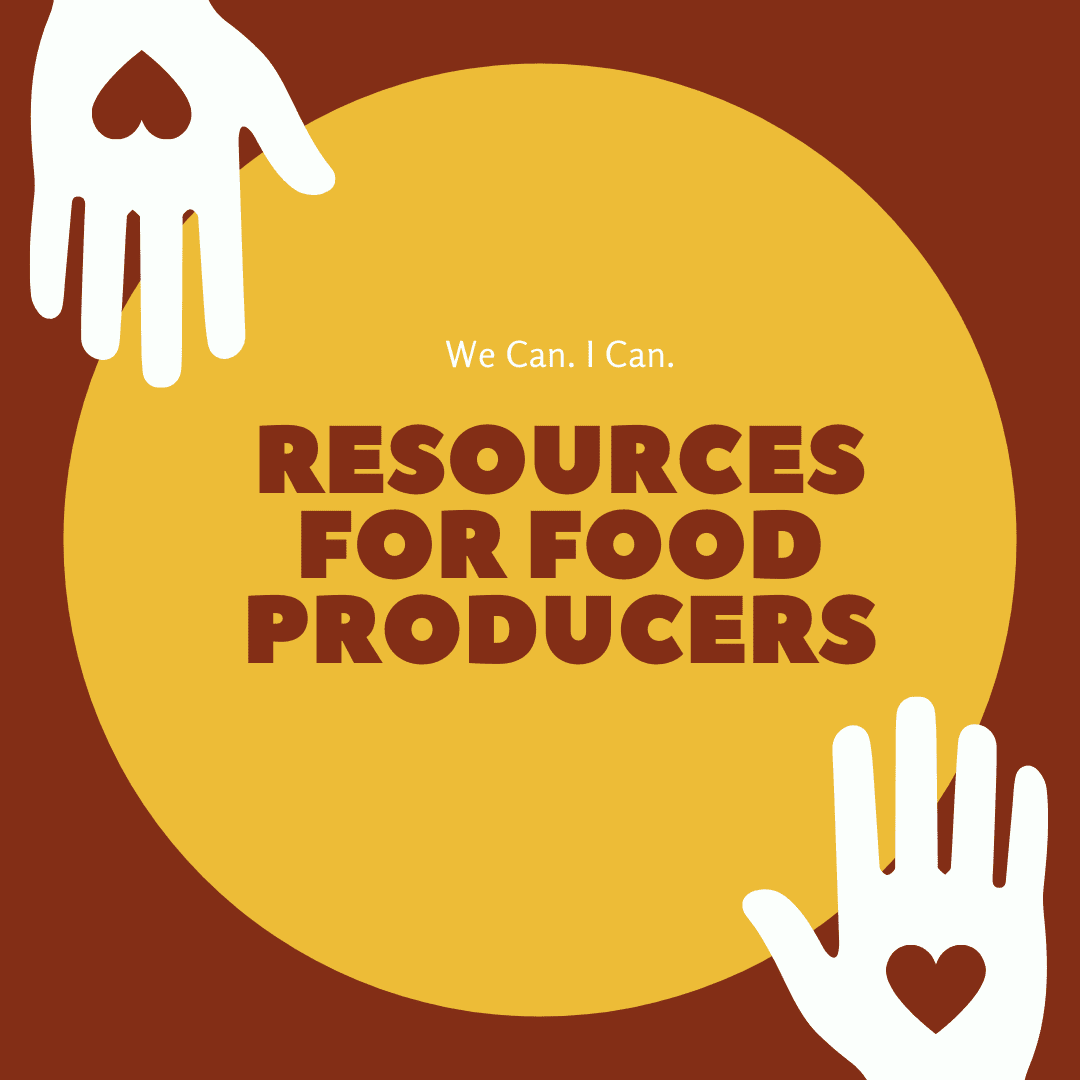Germinator Spring 2022
Food & Farming Program 2022
Organic evaluation and increase of a determinate buckwheat variety
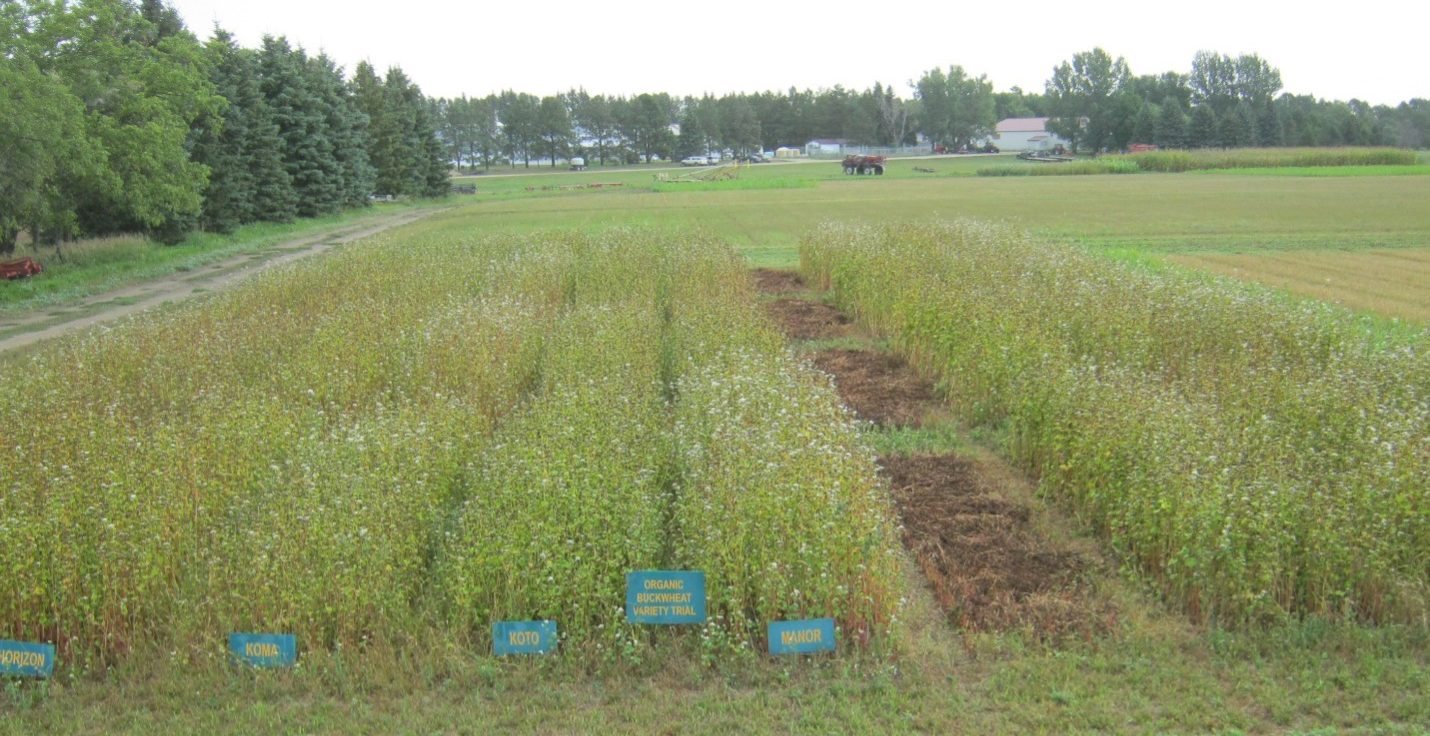
This is a final report for a mini-grant received from the Organic Crop Improvement Association for work that was completed in 2020.
Buckwheat is a late planted short season broadleaf crop that is very adapted to the North Dakota environment, and is an important crop for organic farmers. Buckwheat also has a positive impact on a number of eco-system services including weed suppression, nutrient addition, erosion control, and tilth improvement. Buckwheat with its long flowering periods and abundant flowers provides excellent habitat for pollinators. The majority of buckwheat varieties are indeterminate, meaning they will continue to flower and set seed throughout the season until the crop is terminated. This report will focus on the determinate variety Devyatka which has an earlier, shorter flowering period along with earlier maturity.
Objectives:
In the summer of 2012 NPSAS Farm Breeding Club (FBC) members met with agricultural representatives from the Ukraine who came to North Dakota to find out how we manage crops and to attend trade shows. They provided the FBC with one kilogram each of two of their favorite buckwheat varieties, which are large seeded and determinate in their growth. Results from the initial project “New Buckwheat varieties for Greater Sustainability” can be found on the North Central SARE final report link below.
Only small amounts of seed were left from the initial work completed in 2014, our efforts experienced drought and hail related setbacks but we did manage to harvest limited seed, so in 2019 the CREC in collaboration with NPSAS increased the remaining seed on the Research Centers certified organic plot ground. The increase was planted May 31, swathed August 19, harvested August 29 and resulted in 99.6 pounds (1179 lbs/ac) of clean seed to be furthered increased in 2020 along with evaluation comparing currently planted indeterminate varieties.
In 2020 we received funding from the Organic Crop Improvement Association (OCIA) R&E Micro Grant (Research) program to continue this work. Funds were used to support the organic variety trial and two seed increases on certified organic land producing certified organic seed of this variety.
Methods & results:
An organic variety trial was planted at the CREC on May 25 on ground that was previously cover crop. Six currently available buckwheat varieties were planted to compare their performance to Devyatka. The field trial sown in 7” rows at 55 lbs/ac PLS. Conditions were good at seeding with fast uniform emergence that aided in weed control. Devyatka was earlier to flower and mature, it was swathed on August 20 and harvested on September 1. The other varieties were swathed on August 27 and harvested on September 4. Data gathered on flowering, Table 1., illustrate that most of the varieties started to flower 35-36 days after planting with Devyatka starting to flower in 30 days. Data also show that this variety is shorter when compared to the other varieties. Plant heights were 32 inches compared to the trial mean of 45 inches. This reduced height did result in less plant lodging compared to other varieties. Test weight was significantly lower for Devyatka compared to other varieties. Test weight was 45 lbs/bu compared to the trial mean of 48 lbs/bu. Growing conditions and seed yields in 2020 organic variety trial were excellent, highest ever recorded in the organic tests at the CREC. Seed yield of Devyatka was good, 1459 lbs/ac, although it was also significantly lower than all of the other varieties tested with a trial mean of 2066 lbs/ac. Koto was the highest yielding entry at 2362 lbs/ac. Koto also has one of the highest test weights in the trial.
Seed was increased again this year for future evaluation. Seed was increased at two locations for insurance against severe weather conditions. The main increase was done by Owen Trangsrud on a certified organic farm in North Central Ransom county, near Enderlin, ND. The 1.8-acre field was sown on June 13 at a rate of 50 lbs/ac. Crop rotation on the field was 2017 alfalfa, 2018 flax, and 2019 white sorghum. Plant heights were greater at this location with plants being 49 inches tall with plants reaching heights of 64 inches. Plant lodging occurred near the end of the growing season due to the tall plant height. The crop was swathed on September 2, and harvested September 12. The field yielded 3740 lbs. of seed or 2077 lbs/ac. This site received more rainfall than the CREC site with 15.76” compared to 9.04”. A second backup increase was done at the CREC that yielded 71 lbs. clean seed or 1085 lbs/ac. This site yielded less mainly due to deer predation.
Based off this year’s results from a high yielding growing season for buckwheat it appears that planting an indeterminate variety results in higher yield and quality. We plan to continue testing and increasing this variety to determine how it will perform across varying growing seasons and environments and to produce certified organic seed of this variety available to farmers.
Table 1. 2020 organic buckwheat variety trial at the NDSU CREC.
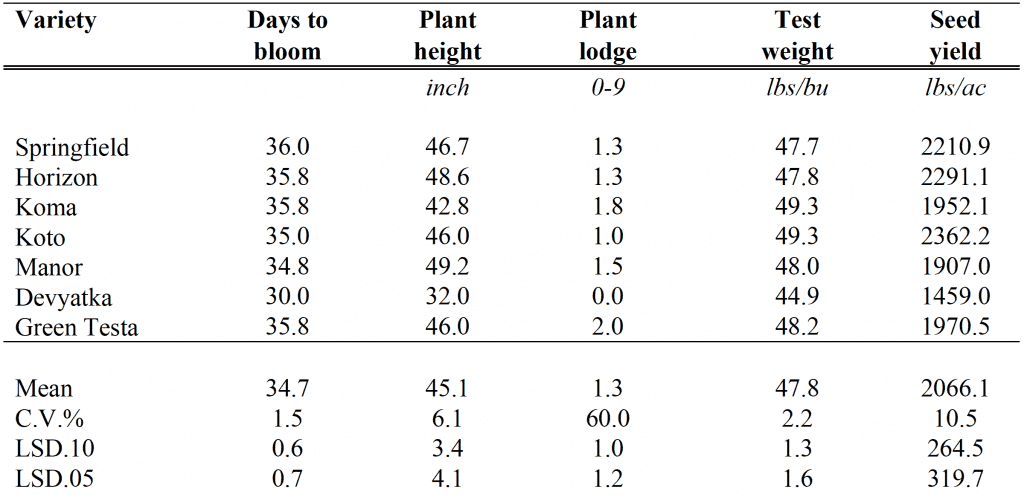
USDA Aid for Farmers: Action Resources
USDA Pandemic Aid for Farmers: Action Toolkit
Prepared by the National Sustainable Agriculture Coalition Grassroots Team
The situation: USDA is preparing to distribute $16 billion in direct aid to farmers and ranchers who have experienced financial losses due to the COVID-19 pandemic. Applications for the program, called the Coronavirus Food Assistance Program (CFAP), will be open in early May – but the program as currently designed will leave out thousands of farmers. These are unprecedented times – now is the time to urge USDA to fix problems with the program so aid can get to all who need it.
The problem: USDA’s aid program may leave folks out. It isn’t set up to account for farmers who sell into local/regional markets, diversified farmers, or organic farmers, it doesn’t have a thorough outreach plan or reserved funding for underserved producers (including farmers of color), it doesn’t reflect realistic timelines for farmers’ losses or their increased expenses in addition to their losses, and it isn’t set up to focus aid on independent, family-scale producers who need help (instead of large corporate operations). USDA has not yet released full details on their program – so now is the time to ask questions and speak up to ensure the program works for all farmers in need of aid.
What we can do:
- We can share stories that show who is missing from the program and at risk of being left out
- We can ask questions to highlight issues, concerns, and gaps in information about the program
- We can demand that USDA do better for farmers and ranchers and share solutions
How we can do it:
- Farmers: you can share stories on social media – along with asks – and tag USDA!
- Farmers: you can call your county FSA office to register your concerns and ask questions
- Farmer allies: you can amplify farmers’ stories and publicly stand with farmers at risk of being left out of USDA aid
What we’re asking USDA to change:
- Provide payments to farmers selling into local/regional channels who have lost markets
- Conduct a thorough outreach program to reach all farmers and reserve funding for underserved producers, including farmers of color
- Focus funding toward family farms, not corporate middlemen
Links:
- NSAC Action Page: https://sustainableagriculture.net/take-action/
- FSA County Office Directory: https://offices.sc.egov.usda.gov/locator/app
- USDA Press Release (official source of program details thus far): https://www.usda.gov/media/press-releases/2020/04/17/usda-announces-coronavirus-food-assistance-program
FARMERS – Telling Your Story
Social Media Samples, Hashtags, and Handles
The most effective thing you can do is share your own story in your own voice – with photos. Most importantly – speak up about the impacts you are seeing, the market losses you are experiencing, the innovating you are doing, and why it’s important that USDA supports farmers like you. You don’t need to have all the answers – just be willing to speak up in your own words! Your own stories, photos, and questions are most important – as is tagging USDA! Here’s a guide to get you started:
Hashtag to use: #dobetterUSDA, #plant2020 (it’s planting season, and USDA is closely following spring planting across the country with the hashtag #plant2020. Has your planting been affected by the pandemic? Use this hashtag too!)
Handles to tag: USDA is @USDA on Facebook and Twitter. Tag your Congressional representative and Senators too! You can look them up here: https://www.govtrack.us
Twitter sample –
Hey @USDA – [your farm] needs #coronavirus aid – I’m worried you will leave us out. This is a photo of [your fields, your crops, etc – what does the photo illustrate?]. [Sample Qs you can use: How can diversified farmers show their losses? How can organic farmers qualify at organic prices? What about farmers whose losses came after April 16? How will you ensure equitable aid to farmers of color? etc] We need you to #dobetterUSDA!
Facebook sample –
Hey @USDA – my farm has experienced major financial losses due to #coronavirus, but I’m looking for information and your farmer aid program doesn’t seem to include funds for farmers like me. This is a photo of [your fields, your crops, etc] – [share your story here – how has your farm been impacted and what does the photo illustrate?]. [Sample Qs you can use: How can diversified farmers show their losses? How can organic farmers qualify at organic prices? What about farmers whose losses came after April 16? How will you ensure equitable aid to farmers of color? How can this program help me? etc]. We need you to #dobetterUSDA!
Call Scripts and Guidance for Calling USDA FSA Offices
We recommend that farmers who feel comfortable doing so reach out to their FSA offices to ask questions about the Coronavirus Food Assistance Program. This will provide farmers an early opportunity to receive information on the program as it becomes available. It will also elevate for USDA concerns about how this program will work for small-scale, diversified, and direct-market farmers.
Basic instructions –
- Look up your county office via the FSA County Office Directory: https://offices.sc.egov.usda.gov/locator/app
- Give them a call!
- Introduce yourself, your farm, what you do
- Let them know you’re calling about the new USDA Coronavirus Food Assistance Program$16 billion in farmer aid and that you have some questions about your eligibility
- Keep us posted about what you hear! Send news you learn from your FSA office to alerts@sustainableagriculture.net
Example questions to consider when you call your FSA county office –
- I hear there is aid money available for small farmers who sell at farmers markets and directly to schools and local restaurants which have been impacted by the pandemic. Do you have any information about how to apply for that?
- Do I need to have any sort of documentation of my sales or losses? How do I show the pandemic’s impact on my business? [If you are a diversified grower – I grow and sell X varieties of crops and am able to capture a price premium for them. How can I ensure this is reflected in my aid?]
- Is there a way to get support if I am still able to sell my crops but my costs of production, marketing, and delivery have increased because of changing protocols? (Increasing home delivery, paying staff for added time sanitizing, additional safety equipment/PPE, etc.)
- Will I qualify for this program if most of my farm income comes later in the year?
- How will USDA handle payments to diversified farmers who don’t produce just one commodity? [Share a little bit about what you grow / raise]
- How can I prove my losses and price information as a certified organic farmer?
Resources for the Local Food Economy: COVID-19
Resources for Farmers: Covid-19
General
University of Minnesota Extension Local Foods College– The Local Foods College is an interactive distance learning opportunity for gardeners and farmers interested in community-based food systems. These free online classes are available to anyone interested in strengthening food systems.
USDA– A deep dive into the USDA’s response to the virus includes a FAQ and many additional resources. USDA fact sheet in response to COVID-19 for organic growers.
National Sustainable Agriculture Coalition– A primer on programs in the Senate relief package and how they relate to the Agricultural sector and farming
Penn State- Articles on best practices on everything from farmers markets to how to access emergency funding.
Business Assistance
Small Business Administration– Provides information on subsidized loans available to business affected by the outbreak
American Farmland Trust– Created a Farmer Relief Fund to help small farmers “weather the current storm of market disruptions caused by the coronavirus crisis” in the form of cash grants.
Employees
Cornell Agricultural Workforce Development– Information on how to talk about and manage the outbreak among your staff.
U of M Extension– Provides a primer on what Covid-19 is and how it could affect/change best practices on your farm includes lists of best disinfectants and sanitization practices etc.
Row Crops/Commodities
CFTC has released temporary relief for people impacted by the effects of Covid-19.
Fruit and Vegetables
MOSES Podcast– Provides guidance for market farmers on how to adapt to the outbreak.
*Audio format* for farmers interested in developing an online sales platform
Oregon Tilth– Provides information on creating web based systems to sell directly to your consumers.
Community Garden Best Practices in light of Covid-19
Dairy
Center for Dairy Excellence– Provides information on best practices within Dairy farms. Also has a list of resources more specific to dairy producers but contains some good resources for other farmers as well.
State-Specific
MN Dept of Ag Covid-19 Response
Update your directory listing on www.npsas.org. Either update it as part of your membership renewal or use the form here. Use the directory to connect with other farmers.
